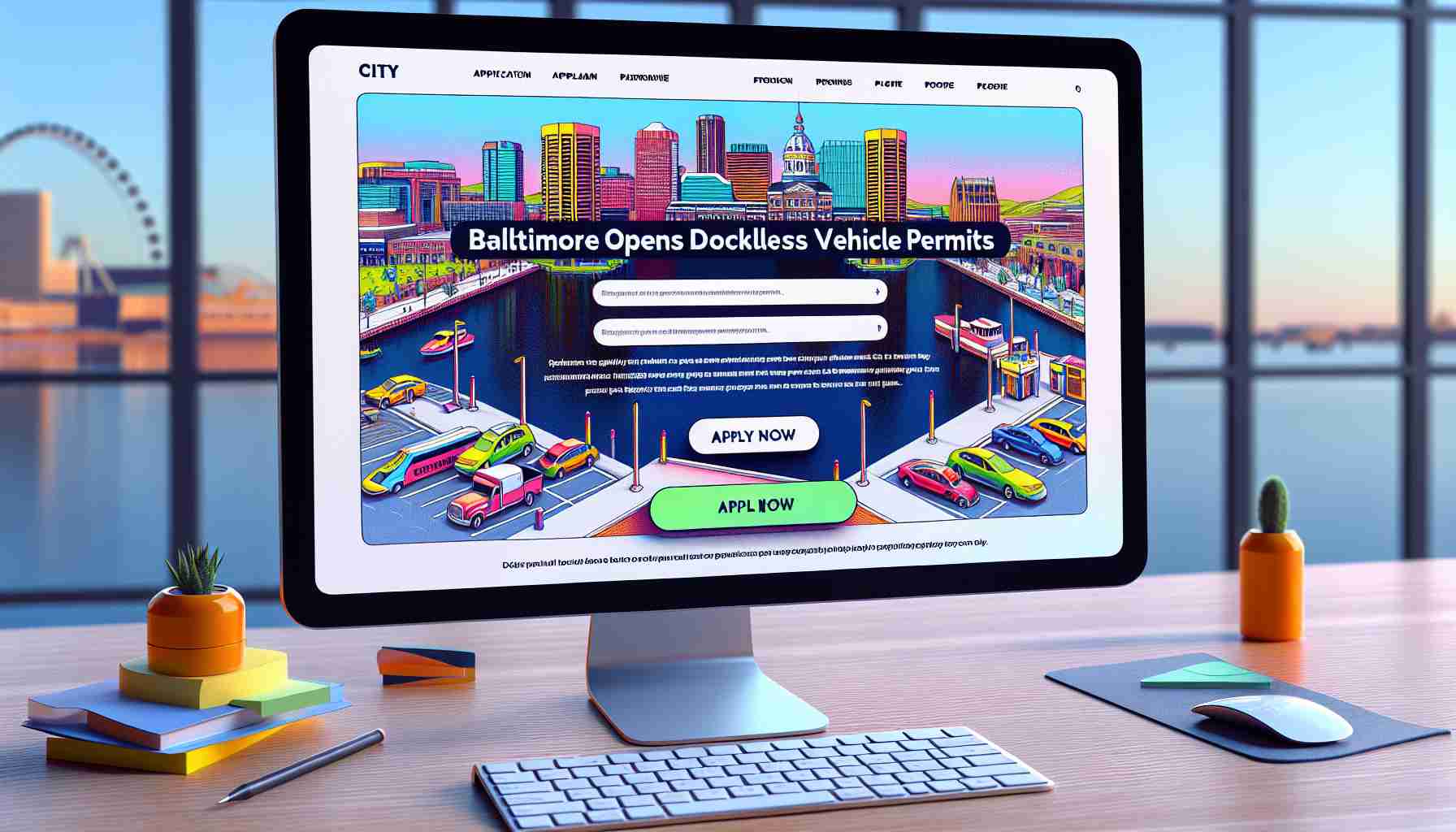Baltimore’s Department of Transportation has recently launched its application portal for companies interested in providing electric scooters, electric bikes, and other dockless vehicles for public use in the city. The city currently grants up to three dockless vehicle permits per year and has already renewed a permit for Spin, a San Francisco-based micro-mobility company. Spin was selected based on community rankings and adherence to the city’s guidelines and standards. The Department of Transportation has stated that they are only looking to add one more company during this cycle.
To be considered for a permit, companies must meet several requirements. They must maintain a fleet size between 150 and 1,000 vehicles, consisting of a combination of permitted dockless vehicles. The application process involves a strict technical assessment, where companies are evaluated based on specifications, safety certificates, deployment plans, and proposed changes to operations or maintenance.
The competitive process began on May 12, and the deadline for applications is May 29. Recipients will be notified on June 7, and the permits will become active on July 1. It is worth noting that previous applicants and operators in the city are encouraged to reapply.
This initiative comes after Bird, an e-scooter company, lost its permit due to multiple citations during the previous permit year. The Department of Transportation did not disclose the exact nature of the citations, but companies have the option to appeal if they believe the citations were unjust or if there were inaccuracies in the provided data.
As of now, Spin and LINK by Superpedestrian are the only dockless vehicle providers in Baltimore. However, Lime, a shared electric vehicle company, is looking to make a comeback with improved e-bikes and scooters this summer after losing its permit in 2022. Lime is working on enhancing the hardware of their vehicles, including the addition of seated scooters and high-visibility reflectors.
Baltimore’s initiative to expand its dockless vehicle program aims to provide residents and visitors with sustainable and convenient transportation options while also promoting competition and innovation in the micro-mobility industry.
The micro-mobility industry has experienced significant growth in recent years, with the market for electric scooters and bikes projected to reach $41.98 billion by 2028. The rise in popularity of dockless vehicle sharing programs can be attributed to their convenience, affordability, and eco-friendly nature.
Baltimore’s decision to launch its application portal for dockless vehicle companies is part of a larger trend seen across many cities worldwide. As urban populations continue to grow, cities are looking for alternative transportation solutions to reduce congestion and emissions. Dockless vehicles offer a flexible and sustainable option for short-distance travel, addressing the first and last-mile transportation challenges.
However, the industry and its expansion have not been without challenges. One issue that cities face is the management of the increased number of vehicles on the streets. Companies operating in the dockless vehicle market must ensure that their fleet size does not overwhelm the infrastructure and diminish the quality of public spaces. Baltimore’s requirement of maintaining a fleet size between 150 and 1,000 vehicles aims to strike a balance between availability and manageability.
In addition to fleet management, safety is another key concern for the industry. As more people adopt electric scooters and bikes for their daily commute, ensuring the safety of riders and pedestrians becomes paramount. Companies applying for permits in Baltimore must meet safety standards and provide safety certificates as part of the technical assessment process. These measures help ensure that the vehicles meet specified safety requirements and that operators have adequate plans for maintenance and operations.
Another issue that arises in the dockless vehicle industry is the need for effective regulation and enforcement. The loss of permits by companies like Bird and Lime highlights the importance of adhering to city guidelines and standards. Cities must strike a balance between fostering innovation and ensuring compliance with rules that protect public safety and infrastructure.
As the industry continues to evolve, companies are investing in improving their vehicles and services. Lime’s plan to reintroduce their improved e-bikes and scooters in Baltimore demonstrates the company’s commitment to addressing the issues that led to the loss of their previous permit. This continuous improvement and innovation in the market contribute to a better user experience and the overall success of shared micro-mobility programs.
In conclusion, Baltimore’s initiative to expand its dockless vehicle program reflects the growing popularity and importance of micro-mobility solutions in urban transportation. By allowing more companies to participate in the program, the city aims to provide residents and visitors with more sustainable and convenient transportation options. However, the industry must address challenges related to fleet management, safety, and regulation to ensure the long-term success and integration of dockless vehicles into city transportation systems.






















